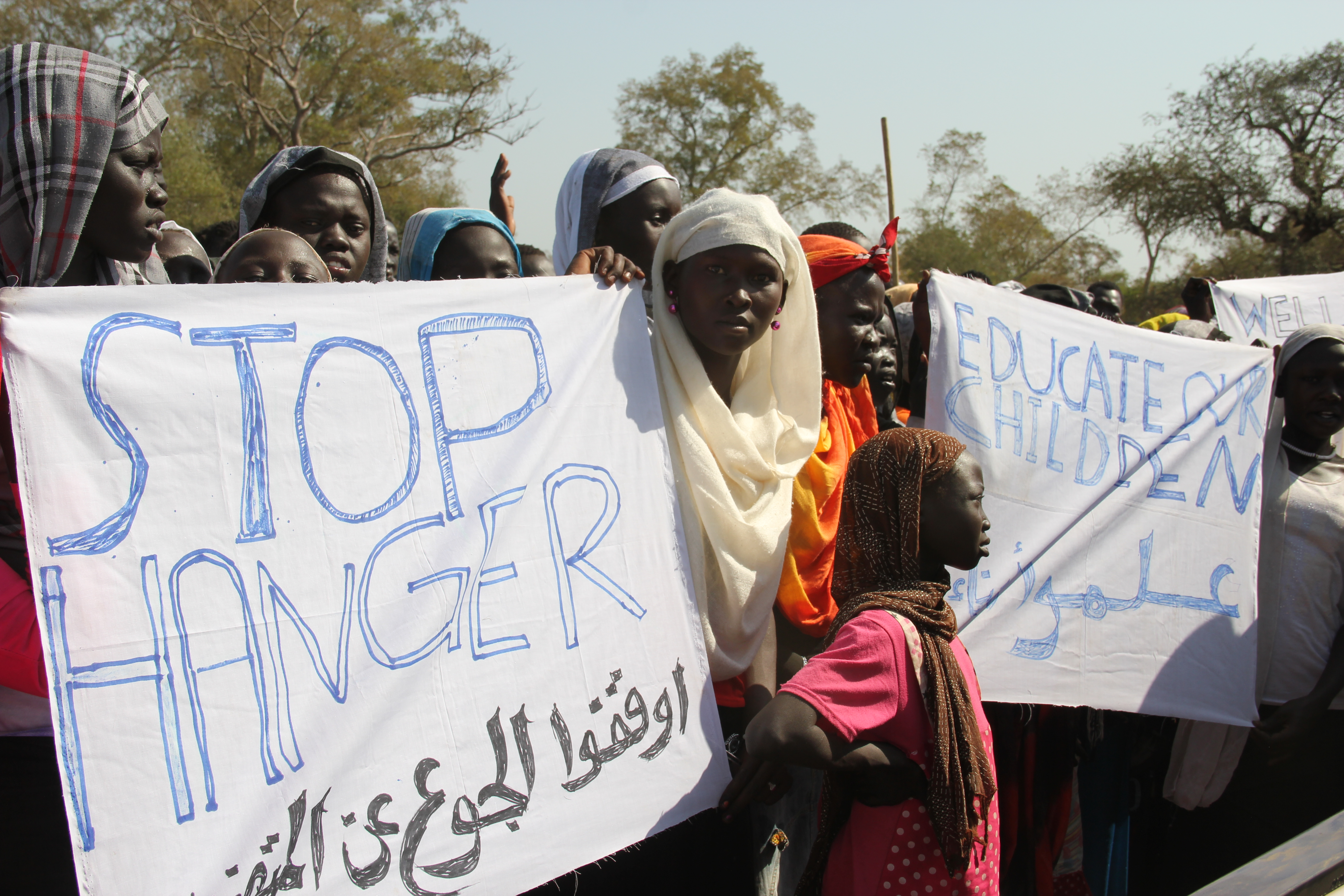Help our local partners realise their vision of hope for their communities

Fighting broke out in Sudan’s capital, Khartoum, in mid-April. This follows months of tension between two large armed groups: the Sudanese Armed Forces and Rapid Support Forces. Each group blames the other for provoking the violence. Both are now locked in a brutal struggle for power, battling for control of the country’s major institutions.
Innocent civilians are caught in the crossfire. Many have lost their lives or suffered life-changing injuries. Air strikes, heavy artillery and street fights have devastated homes and vital infrastructure. Tens of thousands have fled the capital, while millions face the prospect of hunger.
“Families are stuck in their homes in baking heat without electricity or sometimes water. Hospitals have run out of supplies and aid agencies have suspended operations.”
HART goes where others won't
Major aid organisations – including the United Nations and World Food Programme – have temporarily stopped many of their operations in Sudan for security reasons. Their decision to suspend humanitarian assistance will have a huge human cost, as many Sudanese lack access to basics like food and water. Families will be left to fend for themselves.
HART is not just ‘another aid organisation’. We work through local partners who are frequently relied upon to manage a crisis on their own, especially when big agencies like the UN withdraw because of insecurity. Our relief programmes focus primarily on people in need who do not receive assistance from major aid organisations.
“Food assistance from HART came at the right time and was delivered at the peak of the local people’s suffering.”
Away from the headlines
The world’s media continues to focus on events in Khartoum, with almost no attention paid to other parts of Sudan. The states of Southern Kordofan and Blue Nile (often referred to as the ‘Two Areas’) are located along the country’s volatile southern border with South Sudan. HART has worked with local partners here since 2006.
Under the previous military regime, civilians in the Two Areas were targeted with aerial bombs and ground assaults. Attacks were directed towards mosques, churches, schools, marketplaces and other vital infrastructure. Families were forced to flee to locations with life-threatening conditions, including snake-infested caves, unable to cultivate crops and falling into severe hunger.
HART's visit brought so much hope to the people who feel forgotten and isolated from the rest of the world.
The voice of local people
Local experts tell us that food insecurity in the Two Areas has put renewed pressure on the civilian population. The staple-crops harvest from the last rainy season was very poor. Food stocks are declining, which has increased dependence on local markets, which in turn impacts the price of food. “The food crisis will get worse”, we are told, “as many people are currently fleeing war in Khartoum and are heading to the Two Areas.”
Thousands of refugees have already fled to the Two Areas as a result of conflict in Ethiopia and the inadequacy of refugee camps in South Sudan. The influx of new arrivals places increased pressure on the states’ limited resources and food supplies – a concern that will grow as people escape recent violence in Khartoum.
“The humanitarian situation continues to deteriorate with the magnitude of human suffering rising by the day, as Sudanese lack access to basic essentials like food, water, electricity and medical services.”
Life-saving support
Earlier today we received an urgent humanitarian update from our local partner in the region, Benjamin Barnaba, Executive Director of a local aid organisation called the New Sudan Council of Churches (NSCC). His team provide emergency relief for families in the Two Areas and displaced communities at risk of starvation.
The NSCC is currently transporting life-saving food supplies to the Nuba Mountains in Southern Kordofan. Benjamin told us: “The situation is very difficult. We might be forced to reduce individual rations so that we reach a bigger number of people at this time of need… HART’s support came at a right time!”